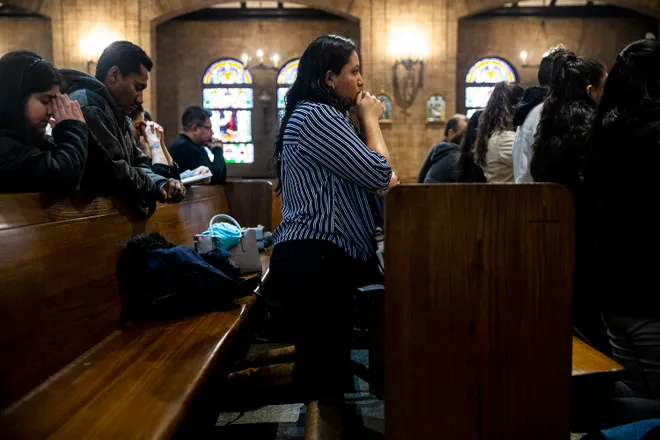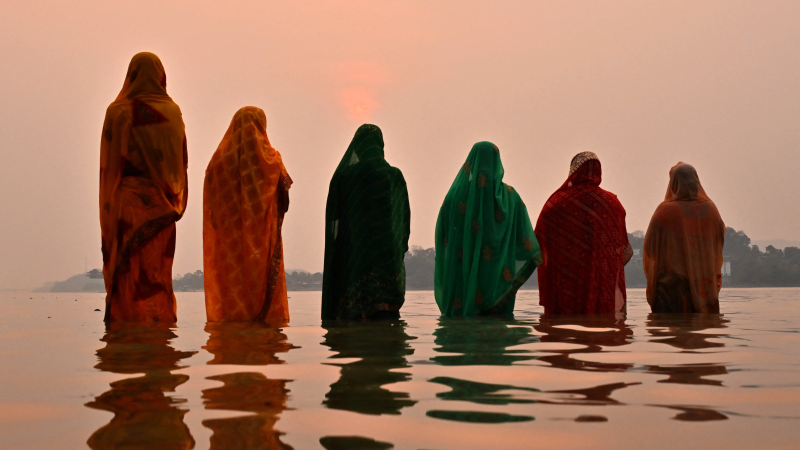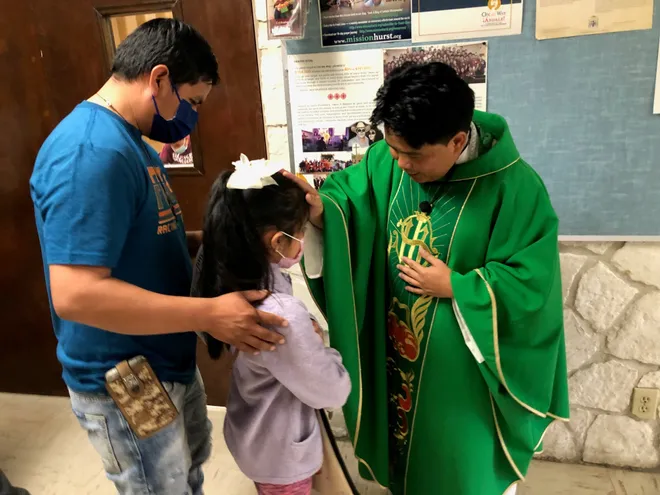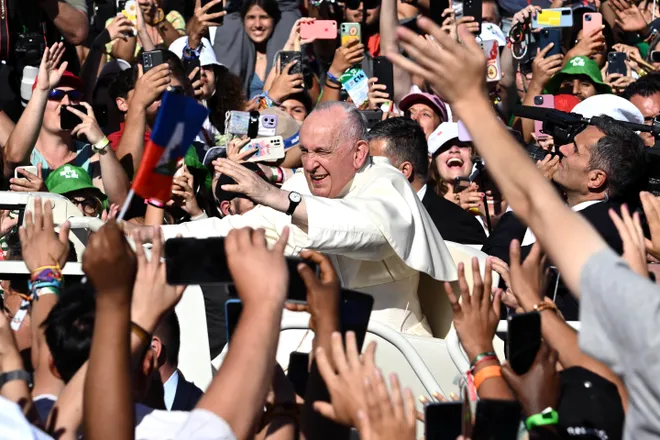Share of US Catholics backing legal abortion rises as adherents remain at odds with church
A solid and growing majority of U.S. Catholics say abortion should be legal in most cases despite the church’s staunch opposition to the practice, an issue many believe could play a crucial role in the November elections.
Additionally, while the portion of U.S. adults who are Catholic remains steady at about 20%, Hispanic Catholics are largely younger and on the rise while white Catholics are older and falling as a portion of the population.
Both findings were among those recently published by the Pew Research Center in Washington in a report drawing on data from recent national surveys.
“The Pew statistics confirm what is obvious on the ground,” said Jonathan Tan, professor of Catholic studies at Case Western Reserve University in Cleveland: The U.S. Catholic Church once predominantly Irish, Italian and German and, shaped by 19th- and early 20th-century immigration, has become increasingly diverse and pluralistic.

The Pew center also reported support for Pope Francis has dipped slightly from previous levels, with 75% viewing the pope favorably, compared to previous levels of around 80%.
But it was Catholics’ continuing support for abortion that stood out among the findings, with about 6 in 10 Catholics saying abortion should be legal, up from 56% in 2019.
Nearly 4 in 10 said abortion should be legal in most cases, with 22% saying it should be legal in all cases. Support was split largely along party lines, with 78% of Catholic Democrats saying abortion should be legal in most or all cases, compared to 43% of Catholic Republicans.
Support was slightly higher among Hispanic Catholics (63%) than white Catholics (59%). That’s one reason Jamie Manson, president of advocacy organization Catholics for Choice, said her group has been gearing up to mobilize voters in Hispanic-heavy states like Arizona and Florida that have highly restricted reproductive rights and where measures are either on the ballot or pending sufficient signatures.
“We are prioritizing those regions and putting organizers on the ground, and all our materials are available in Spanish,” Manson said. “I think Catholics are going to win this, specifically Hispanic Catholics.”
Catholics are older than most Americans
About 57% of the nation’s approximately 52 million Catholics are white, falling from 65% in 2021. Meanwhile, Hispanics now comprise a third of all Catholics, a bump of four percentage points.
Catholics tend to be older than most Americans, the survey found, with about 6 in 10 Catholic adults aged 50 or older compared to 48% of the overall U.S. population. White Catholics comprise the majority of that group, with more than two-thirds of white Catholics falling in that age range compared to just 43% of Hispanic Catholics.

Nearly 4 in 10 white Catholics are 65 and older, compared to just 14% of Hispanic Catholics, the study found.
However, Hispanics aren’t a demographic the Catholic Church can take for granted, said Michele Dillon, a professor of sociology at the University of New Hampshire. While people with roots in South and Latin America were once considered staunchly Catholic, she pointed out that many are shifting to evangelical Christian churches or no religious affiliation.
“Given the marketplace for religions, there’s a lot more choice,” Dillon said. “The church is stable and even in a strong position, but it has to do the work of energizing new generations. The big challenge is maintaining relevance.”
The number of U.S. Latinos who identify as Catholic has dropped sharply in the last dozen years. Pew research published last year showed that just 43% of Latinos identified as Catholic, down from 67% in 2010.
Dillon said white Catholics tend to be more economically and educationally established than Hispanic Catholics. Should that gap continue, she said, it could produce internal segregation within Catholicism and individual churches.
“You already see that to some extent in cities and where there are mixed populations, churches where there are mostly white masses and Spanish-language masses,” she said. “But it can lead to tensions at the local level over issues of language or liturgical style. For a church community that wants to have a sense of community and cohesion, those divisions might make it harder for people to meet one another.”

White and Hispanic differences continued among political party lines as well, the recent Pew data showed: Among registered voters, about 6 in 10 White Catholics identify with or lean toward the Republican Party, with the same percentage of Hispanic Catholics identifying with or leaning toward the Democratic Party.
Overall, 52% of Catholic registered voters identify with or lean Republican, while 44% identify with or lean Democrat. Catholic voters were split in the 2020 presidential election, with 49% voting for Trump and 50% supporting Biden.
Pope Francis' favorability dips but remains high
A majority (3 in 4) of U.S. Catholics have favorable opinions of Pope Francis, still down from 83% in 2021, with support falling among those who rate the pontiff highly: Just 26% of Catholics rated the pope “very favorable” in the latest survey, compared to 34% in 2021.
Views of the pope also varied along party lines, with 89% of Catholics who identify as or lean Democrat holding positive views compared to 63% of those who lean Republican.
“The ebb and flow in his ratings is because he’s trying to tackle a lot of issues, like climate change and gender ideology,” Dillon said. “These are important issues for how people live and how the world survives, but around which there is not unified consensus. Raising questions is actually a positive thing and one of the strengths of his papacy.”

Overall, 72% of Catholics said Pope Francis represents a change in direction for the church, with 4 in 10 saying he marks a major change.
The report also found Catholics largely differ with the church on a number of issues involving sex and gender. Among all Catholics, 83% say the church should allow use of contraception, 69% say priests should be allowed to marry, 64% say women should be allowed to become priests and 54% say the church should recognize same-sex marriage.
Manson, of Catholics for Choice, noted that in addition to the high number of aging Catholics, under 3 in 10 attend service weekly and many are choosing to leave the faith altogether.
“That should be a real wake-up call for bishops,” she said. “One of the reasons people leave is because of rigid instruction on sexuality. An all-male, celibate hierarchy is making the rules, and there’s this chasm between what Catholics believe in practice and what the church is teaching. They are leaving the people behind.”
Disclaimer: The copyright of this article belongs to the original author. Reposting this article is solely for the purpose of information dissemination and does not constitute any investment advice. If there is any infringement, please contact us immediately. We will make corrections or deletions as necessary. Thank you.





